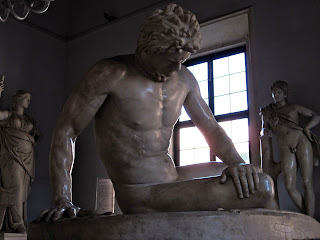Quae nunc it per iter tenebricosum
illuc unde negant redire quemquam.
Fear no more the heat o' the sun,
Nor the furious winter's rages;
Thou thy worldly task has done,
Home art gone, and ta'en thy wages;
Golden lads and girls all must,
As chimney-sweepers, come to dust.
Shakespeare, Cymbeline (Act IV, Scene 2)
illuc unde negant redire quemquam.
Fear no more the heat o' the sun,
Nor the furious winter's rages;
Thou thy worldly task has done,
Home art gone, and ta'en thy wages;
Golden lads and girls all must,
As chimney-sweepers, come to dust.
Shakespeare, Cymbeline (Act IV, Scene 2)






